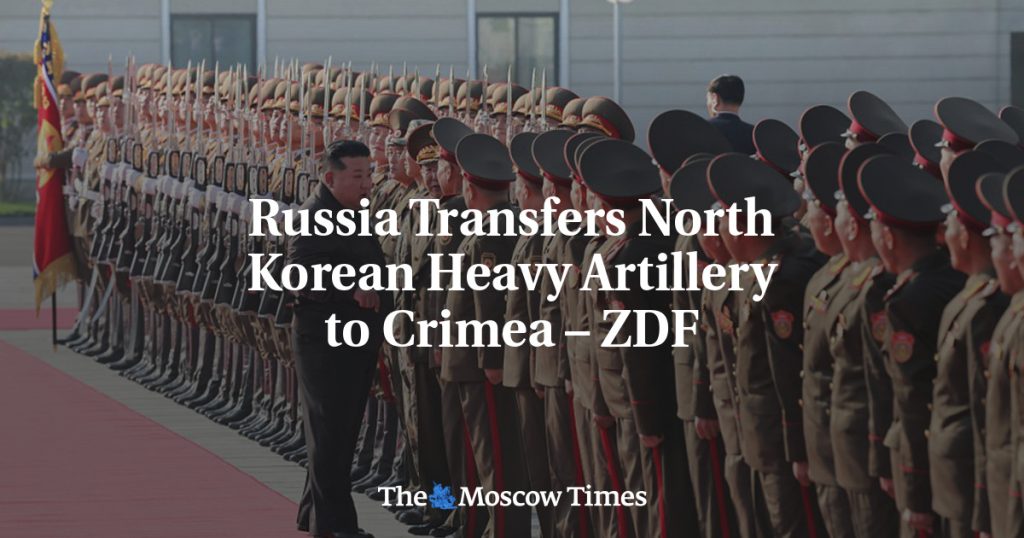Summarize this content to 2000 words in 6 paragraphs
Russia has started transferring North Korean long-range artillery systems to annexed Crimea, the German broadcaster ZDF reported Friday, in a potential indication that Pyongyang’s involvement in the war on Ukraine could soon be expanded.
According to ZDF, a video that appeared online on March 26 showed North Korean Koksan self-propelled guns being transported by train through northern Crimea.
North Korean troops have so far only been observed operating in Russia’s Kursk region, where Moscow has been waging a counteroffensive against Ukrainian troops since August 2024.
But with Ukrainian forces recently pushed back from Kursk, ZDF said Russia could quickly deploy a North Korean contingent to Crimea to target Kyiv’s forces in southern Ukrainian regions.
The artillery systems in question — 170-millimeter Koksan guns — are among the longest-range conventional field artillery pieces in the world and can strike targets up to 40 kilometers away with standard shells and up to 60 kilometers with rocket-assisted munitions.
Western military analysts warn that if deployed in Ukraine’s Zaporizhzhia region, which Russia partially controls, the guns could be used to shell key cities like Kherson and Zaporizhzhia.
The Koksan units were previously used in Russia’s counteroffensive in Kursk, where Ukrainian forces managed to destroy five of them with drones. However, Pyongyang is believed to have supplied up to 200 of the systems to Russia, according to ZDF.
North Korea’s involvement in the war was first confirmed in late 2024, when intelligence reports indicated that Pyongyang had dispatched around 11,000 troops to support Russia. South Korea estimates that roughly 4,000 of those soldiers have since been killed or wounded. In early 2025, North Korea sent an additional 3,000 troops to replenish its ranks.
In addition to manpower, Pyongyang has supplied Russia with large quantities of weaponry including short-range ballistic missiles, self-propelled artillery systems and more than 200 multiple rocket launchers.
The deepening military ties between Moscow and Pyongyang follow President Vladimir Putin’s summer 2024 visit to North Korea, where he and North Korean leader Kim Jong-Un signed a strategic partnership agreement pledging mutual defense assistance in the event of an attack.
On March 21, Russian Security Council chief Sergei Shoigu visited Pyongyang for meetings with Kim, who reiterated his country’s full support for Russia in its war on Ukraine and reaffirmed North Korea’s commitment to the mutual defense pact.
Western officials have warned that the growing military cooperation between the two countries not only threatens to prolong the war in Ukraine but could also undermine international sanctions designed to isolate both regimes.















